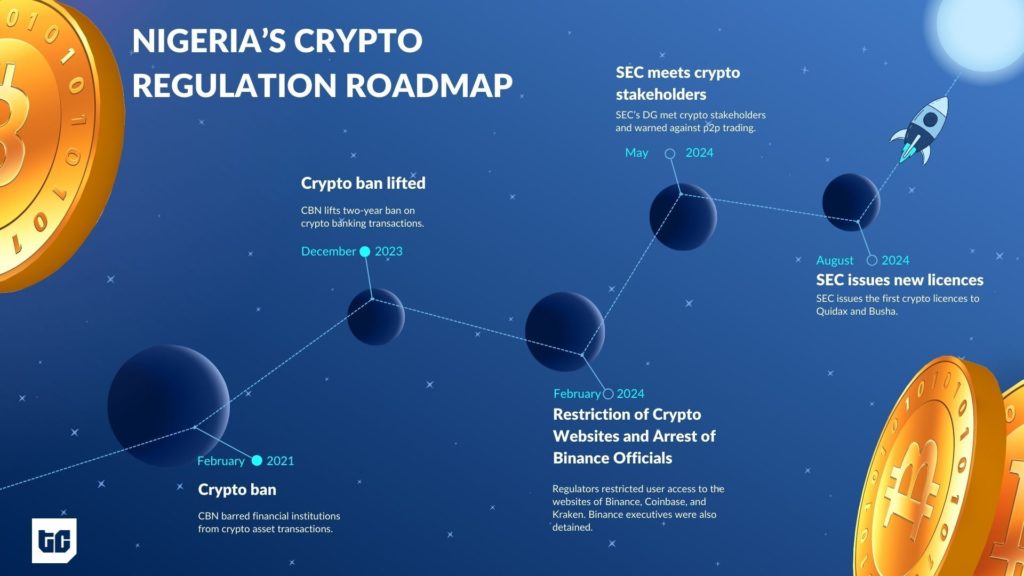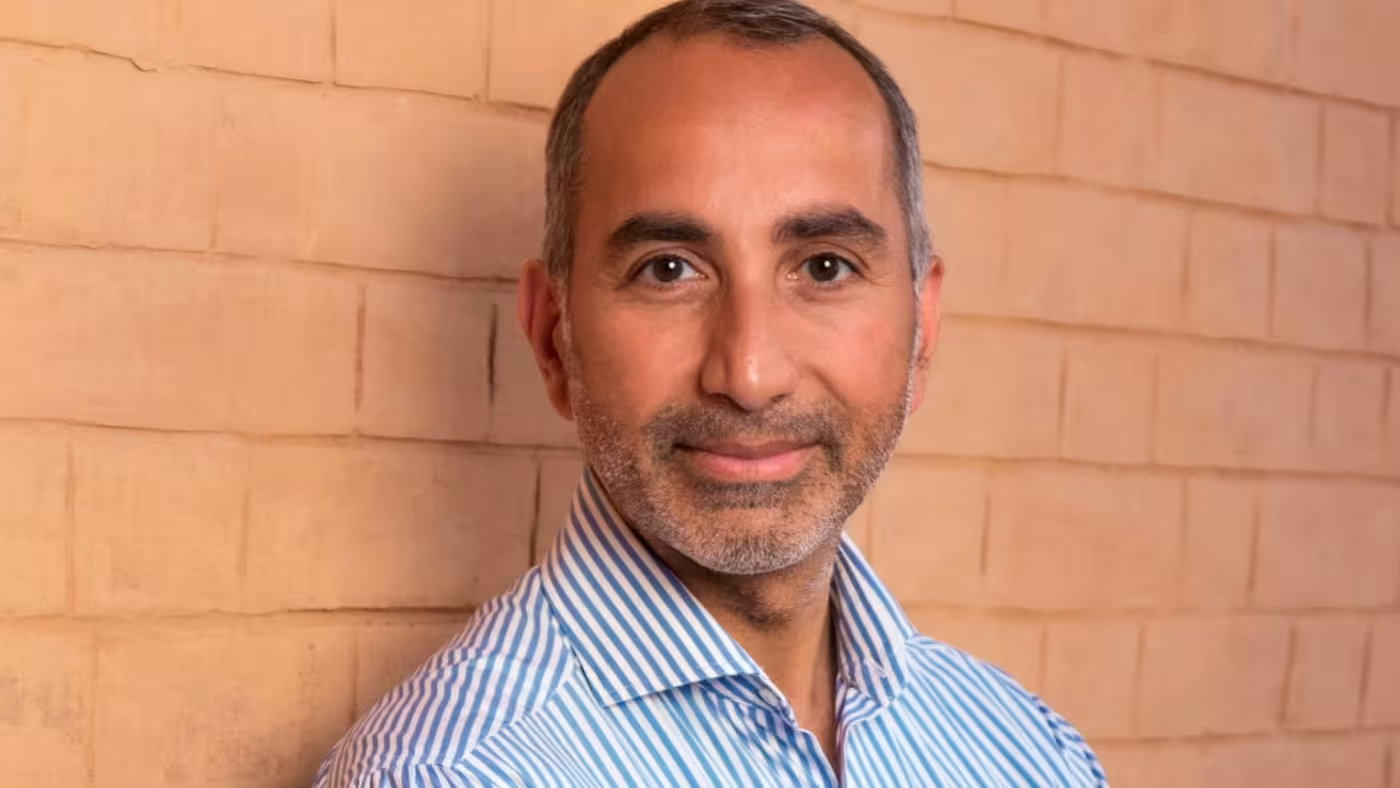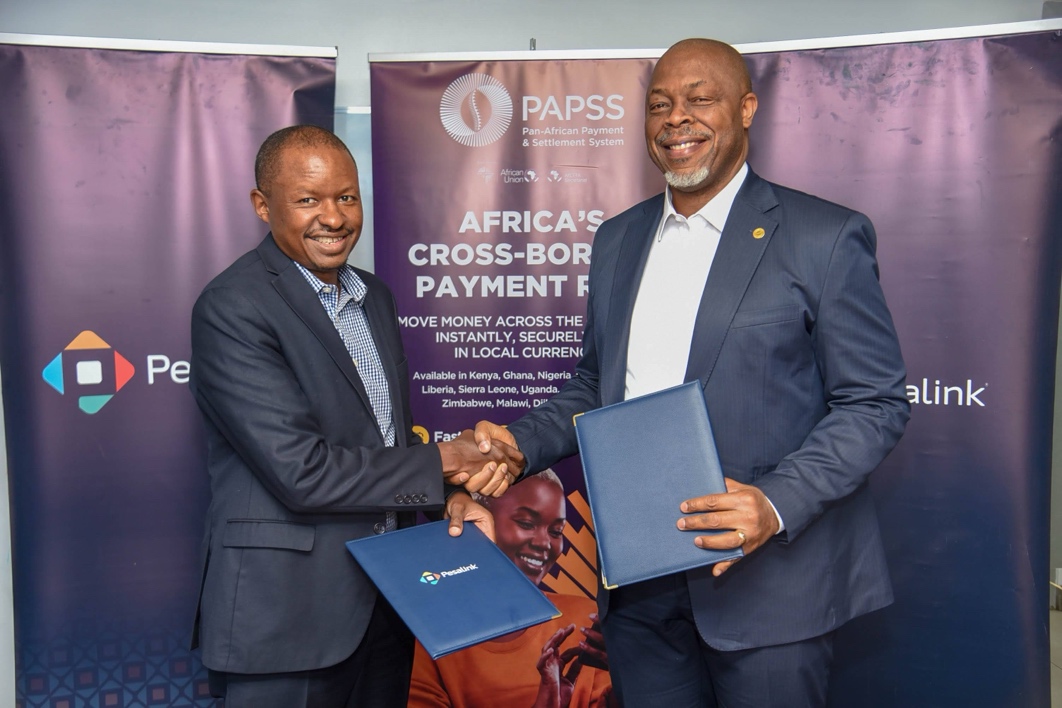On Friday, Nigeria’s Securities and Exchange Commission (SEC) issued the country’s first crypto licences to Busha and Quidax, two home-grown crypto exchanges. It is the latest turn in Nigeria’s love-hate relationship with cryptocurrency after the SEC and the CBN considered regulating peer-to-peer transactions in early 2024.
While the Central Bank lifted a directive restricting banks from “dealing in cryptocurrencies or facilitating payments for cryptocurrency exchanges” in December 2023, it began asking banks to block the accounts of p2p traders by May 2024.
On August 23, 2024, a high court in Uyo, Nigeria, denied an application to unfreeze Patrick Okon’s Kuda bank account. The restrictions on his account were directly linked to crypto payments. In April, the Economic and Financial Crimes Commission (EFCC) asked a court to block over 1,000 bank accounts over crypto links.

In March 2024, Nigeria’s financial regulators blocked prominent fintechs from onboarding new customers for five weeks as a currency crisis worsened. It moved against Binance on claims that the platform allowed for manipulation of the naira and detained two of the company’s executives.
While the case against the detained Binance executive Tigran Gambaryan drags on, the CBN compelled fintechs to block any account believed to be trading crypto. The SEC, which issued last week’s crypto licences, also held several meetings in May suggesting that exchanges should block p2p transactions out of patriotism.
These policy flip-flops make it likely that banks and fintechs will continue to distance themselves from crypto-related activities.
“Crypto is still persona non grata. The CBN has not openly accepted it yet,” one bank executive who asked not to be named told TechCabal.
Banks are ignoring the provisional licences the Securities Exchange Commission (SEC) issued to Quidax and Busha, said highly placed executives at prominent fintech startups.
Omotimi Agama, the SEC’s director-general, insisted to TechCabal that “the CBN has lifted any ban.”
While Agama’s position is accurate, banks and financial institutions prefer to play it safe with the Central Bank, always choosing caution.
“The devil is in the details,” a top executive at one of the fintechs told TechCabal. “The [guideline] is confusing, and the processes are challenging.”
Chike Okonkwo, the founder of Gamic, a blockchain startup, that claims to have been speaking to the SEC since 2019, understands the banks’ position.
“If that circular [greenlighting] the banking of crypto firms is binding, why can’t retail traders freely add crypto to the description of their banking transactions?”
Busha, one of the new licensees, is more optimistic and anticipates a better relationship between banks and crypto companies.
“The issuance of the crypto licences is a critical step in maturing the industry. It means that users can engage with operators with increased confidence, which should generally deepen the market,” a spokesperson for Busha said. The company also claims that it is ready for whatever “tight but effective regulations” are deemed necessary by the CBN.
Until then, banks and fintechs will continue sitting on their hands in understandable fear of the CBN’s hammer.
“Nigerian banking laws are not customer-friendly,” a highly placed fintech executive told TechCabal, adding that “Financial institutions [retain] the right to freeze any account they have reasonable suspicions about any infraction or illicit activity.”
Are crypto trades illegal? Two new licences and the CBN’s December 2023 directive say they’re not. However, one operations manager at a commercial bank states, ” We can only acknowledge the license after receiving instructions from the CBN, our regulator.”



















